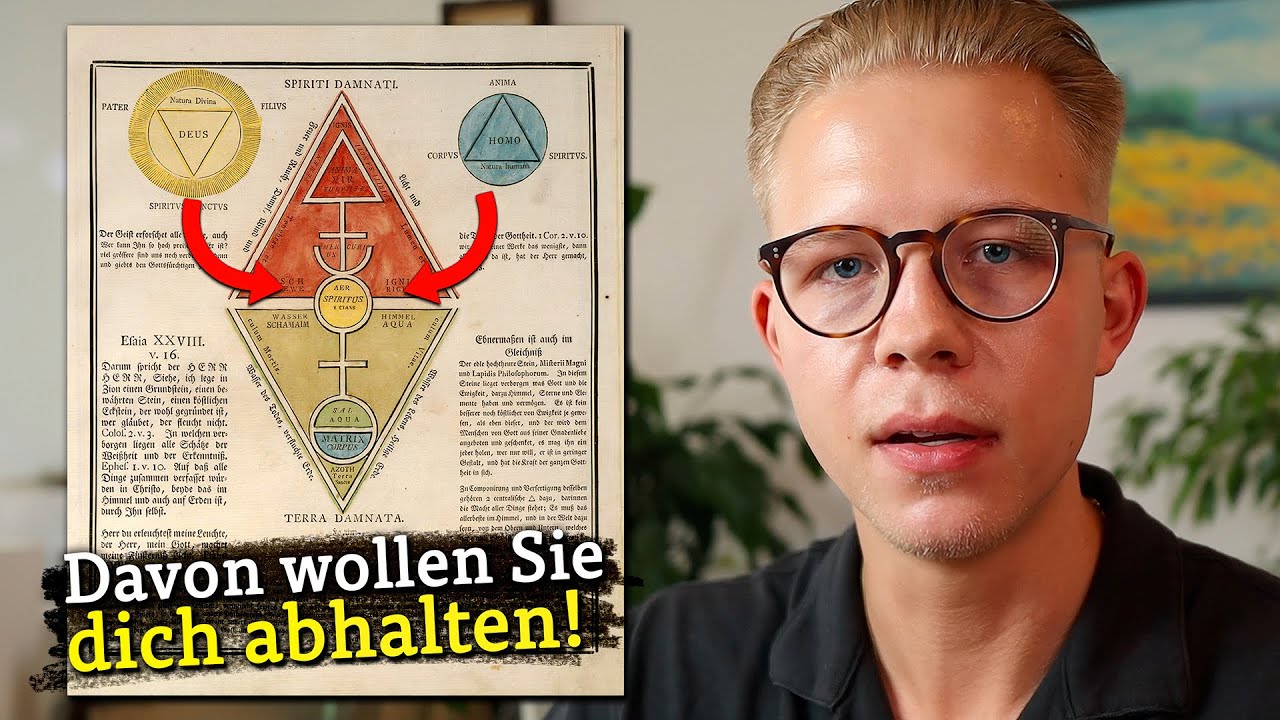How to Journal (Like Marcus Aurelius)
Summary
TLDRDieses Video skizziert die 'Meditationes' von Marcus Aurelius als historisches Wunder, das nicht nur als Leitfaden für den Stoizismus dient, sondern auch Einblicke in das Tagebuch des römischen Kaisers gibt. Es untersucht, wie man ein Journal führen kann, um persönliche Entwicklung zu fördern, indem man sich selbst kennt, ehrlich ist und sich mit sich selbst in einem langen Gespräch auseinandersetzt. Das Video betont die Bedeutung, sowohl große Themen wie Gott oder das Universum als auch kleinere Sorgen zu reflektieren, und betont die stoische Lehre der Kontrolle über das, was man kontrollieren kann. Es präsentiert 'dying the mind' als Methode, um die Welt richtig zu sehen und die Prinzipien des Stoizismus zu leben, und empfiehlt, Journale zu führen, um ein besseres Verständnis von sich selbst zu erlangen.
Takeaways
- 📜 Marcus Aurelius' Meditations ist ein historisches Wunder und ein Leitfaden für den Stoizismus.
- 🔍 Die Meditationen bestehen aus 12 Heften, die persönliche Notizen und Selbstbetrachtungen enthalten.
- 🙏 Der erste Heft ist wie ein Dankbarkeitsjournal, in dem Marcus für Familie, Freunde, Lehrer und Göttliche Gaben dankt.
- 🌟 Marcus nutzt sein Journal, um über seine Prinzipien und mögliche Verbesserungen nachzudenken.
- 🗣️ Das Journal ist eine vertraute Selbstgespräch, in dem er seine Schwächen und Beschwerden offenlegt.
- 🍽️ Hellofresh wird als Sponsor erwähnt und bietet schnelle und einfache Mahlzeiten für den Alltag.
- 🌱 Marcus spricht über große Themen wie Gott, die Natur und kleinere Belästigungen in seinem Leben.
- 🛡️ Ein zentraler stoischer Gedanke ist die Trennung zwischen dem, was man kontrollieren kann, und dem, was nicht kontrollierbar ist.
- 💡 Stoizismus betont die Einheit zwischen philosophischem Denken und praktischem Handeln im Leben.
- 🔄 Marcus wiederholt seine Prinzipien häufig, um sich an sie zu erinnern und sie in seinem Leben umzusetzen.
- ✍️ Journalieren hilft, sich selbst besser zu verstehen, indem man über persönliche Werte und Erfahrungen nachdenkt.
Q & A
Wie ist die Bedeutung von Marcus Aurelius Meditationen in der Geschichte?
-Die Meditationen von Marcus Aurelius sind ein Wunder der Geschichte, da sie nicht nur einen Leitfaden für den Stoizismus bieten, sondern auch das Tagebuch des römischen Kaisers sind, was ein einzigartes historisches Dokument darstellt.
Was sind die fünf Hauptstücke des Puzzles, die im Video erwähnt werden?
-Die fünf Hauptstücke sind: 1) Figuriere heraus, wer du bist, 2) Behandle dein Tagebuch als eine ausdehnte Unterhaltung mit dir selbst, 3) Denken über das Große und Kleine nach, 4) Lerne, auf das zu konzentrieren, was du kontrollieren kannst, und 5) Wiederhole deine Prinzipien häufig.
Warum beginnt Marcus Aurelius sein Tagebuch mit einer Aufzählung seiner Dankbarkeiten?
-Marcus Aurelius beginnt mit einer Aufzählung seiner Dankbarkeiten, um ein Konto seiner Identität zu erstellen, was ihm hilft, seine Prinzipien zu leben und mögliche Verbesserungen zu identifizieren.
Was bedeutet es, wenn man sein Tagebuch als eine ausdehnte Unterhaltung mit sich selbst behandelt?
-Dabei geht es darum, ehrlich mit sich selbst zu sein und Gedanken und Gefühle unmittelbar und unverzüglich aufzuschreiben, ohne andere Menschen zu berücksichtigen.
Was ist der Zweck von HelloFresh und wie kann es Menschen dabei unterstützen, schnelle und einfache Mahlzeiten zu erstellen?
-HelloFresh ist ein Mahlzeitskit, das auf Anpassung an persönliche Vorlieben abzielt und durch vorsortierte Zutaten Zeit und Geld sparen kann, indem es schnelle und einfache Rezepte bietet.
Wie kann das Konzept des Dichotomie der Kontrolle in das Tagebuchschreiben einfließen?
-Das Konzept hilft beim Fokussieren auf das, was man kontrollieren kann, und dabei, Dinge zu ignorieren, die außerhalb der eigenen Kontrolle liegen, was zu weniger Verzweiflung und mehr Handeln führt.
Was ist der Unterschied zwischen dem, was man in den Meditationen von Marcus Aurelius liest, und der Art und Weise, wie man ein modernes Tagebuch führen sollte?
-Obwohl die Meditationen literarisch wiederholend sein können, ist dies für ein Tagebuch von Vorteil, da es hilft, sich an seine Prinzipien zu erinnern und diese in schwierigen Situationen anzuwenden.
Was ist die Bedeutung des Ausdrucks 'das Sterben des Geistes' in Bezug auf die Meditationen von Marcus Aurelius?
-Der Ausdruck 'das Sterben des Geistes' bezieht sich auf die Art und Weise, wie Marcus Aurelius seine Prinzipien wiederholt, um sich auf die richtigen Gedanken und Handlungen zu konzentrieren.
Warum ist es wichtig, sowohl über große als auch kleine Dinge nachzudenken, wenn man ein Tagebuch führt?
-Durch das Nachdenken über beide, große Themen wie das Universum und kleinere Belästigungen im Alltag, kann man eine bessere Verbindung zu seiner eigenen Perspektive und zu seiner Rolle darin finden.
Was ist der Hauptunterschied zwischen den stoischen Philosophen und anderen Denkschulen?
-Stoische Philosophen betonen die Einheit zwischen der Art und Weise, wie man über die Welt denkt, und der Art und Weise, wie man in der Welt lebt, was in der Praxis oft als praktische Ratschläge umgesetzt wird.
Was kann man von Marcus Aurelius lernen, um sein eigenes Tagebuch effektiver zu führen?
-Man kann von Marcus Aurelius lernen, indem man sich auf das konzentriert, was man kontrollieren kann, seine Prinzipien wiederholt und eine offene und ehrliche Unterhaltung mit sich selbst im Tagebuch führt.
Outlines

Esta sección está disponible solo para usuarios con suscripción. Por favor, mejora tu plan para acceder a esta parte.
Mejorar ahoraMindmap

Esta sección está disponible solo para usuarios con suscripción. Por favor, mejora tu plan para acceder a esta parte.
Mejorar ahoraKeywords

Esta sección está disponible solo para usuarios con suscripción. Por favor, mejora tu plan para acceder a esta parte.
Mejorar ahoraHighlights

Esta sección está disponible solo para usuarios con suscripción. Por favor, mejora tu plan para acceder a esta parte.
Mejorar ahoraTranscripts

Esta sección está disponible solo para usuarios con suscripción. Por favor, mejora tu plan para acceder a esta parte.
Mejorar ahoraVer Más Videos Relacionados

Flirting Secret: You Must Be "Turned On" To Turn A Woman On

"Sobald du diesen Zustand erreichst, Manifestiert sich deine Realität"

WissensWerte: Globalisierung

Erweiterter Wirtschaftskreislauf #1 | einfach erklärt

#1 The Purpose Of Adhkar || The Morning And Evening Adkhar

Ich bin das Brot des Lebens | Joh 6, 24-35 | Sketch-Bibel #74
5.0 / 5 (0 votes)
